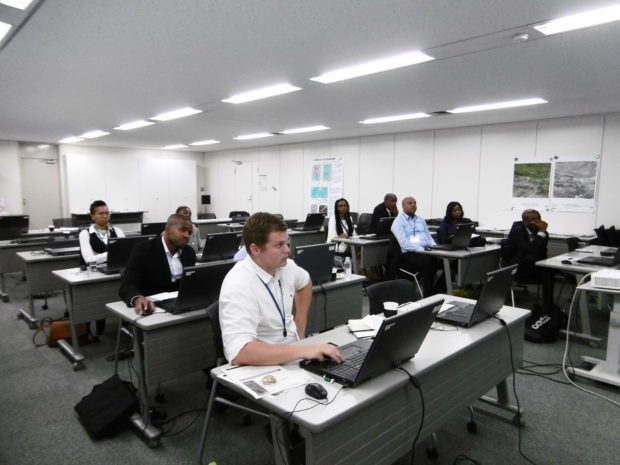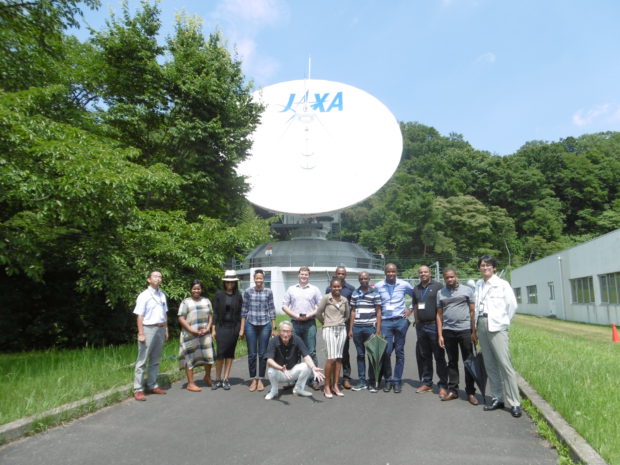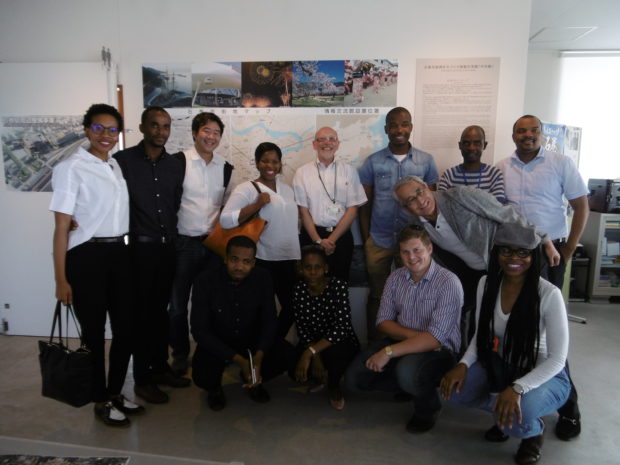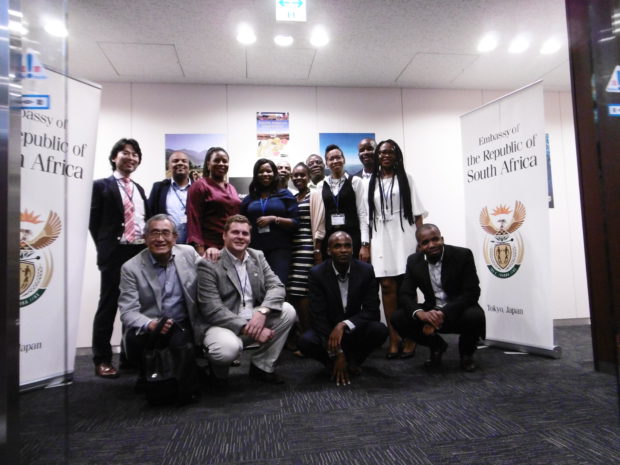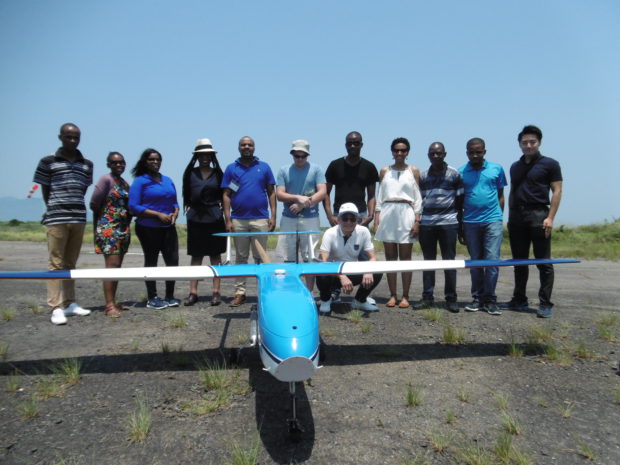
On July 21, 2017, the trainees from South Africa completed the entire training program arranged by RESTEC. The program focused on maritime observation, in particular detecting illegal fishing boats and InSAR analysis for sinkholes caused by ground collapse after mining. During their one month stay in Japan, they learned about the policy concerning Japan’s earth observation, the theory of SAR, various applications of remote sensing, roles of the Japan Coast Guard, Japanese UAV technology, and so on.
The facilities they visited included:
◇Tanegashima Space Center (TNSC) / Japan Aerospace Exploration Agency (JAXA)
◇Tsukuba Space Center (TKSC) / JAXA
◇Earth Observation Center (EOC) / JAXA
◇IHI Aerospace, Tomioka (Epsilon Rocket) Factory
◇Mitsubishi Electric Corporation Kamakura Works
◇Tokyo Wan Vessel Traffic Service Center /Japan Coast Guard (JCG)
◇Tokyo Operations Service Center / JCG
◇Japan Coast Guard Museum Yokohama / JCG
◇Ishinomaki Community & Info Center (ICIC)
One of the highlights of the program was two days of specialized UAV training by Mr. Tanabe and his colleagues of Fuji Imvac Inc. They flew their unique UAVs with an automatic flight system at Miho airfield to demonstrate how the UAVs can find illegal fishing boats in combination with satellite remote sensing. The delegation was impressed by his idea and flights.
At Tohoku University, the trainees learned about Disaster Science for Society related to sinkholes and visited the coastal area devastated by the Great East Japan Earthquake.
In addition, the delegation was kindly invited to the South Africa-Japan University (SAJU) Forum by the South African Embassy in Japan and the Japan Science Technology Agency (JST). They enjoyed academic discussions between Japanese and South African researchers.
Ms. Silindile Majola, the head of the delegation and the Executive Manager of Ekuruleni Metro Municipality, stated, “My organization has been utilizing optical remote sensing data for a long time. We were aware of SAR data, but not its application. By attending this course, the application of SAR data obtained through satellites and UAVs was explained and demonstrated clearly and I am certain that it will help in speeding up service delivery in my organization.”
This training program was fully funded by the Japan International Cooperation Agency (JICA). RESTEC would like to express its appreciation for this precious opportunity provided by JICA and assisted by the Embassy of the Republic of South Africa.
RESTEC would also like to state its appreciation for the excellent lectures conducted by lecturers from Fuji Imvac Inc., IHI, IHI Aerospace, JAXA, JCG, Tokyo Denki University and Tohoku University.
